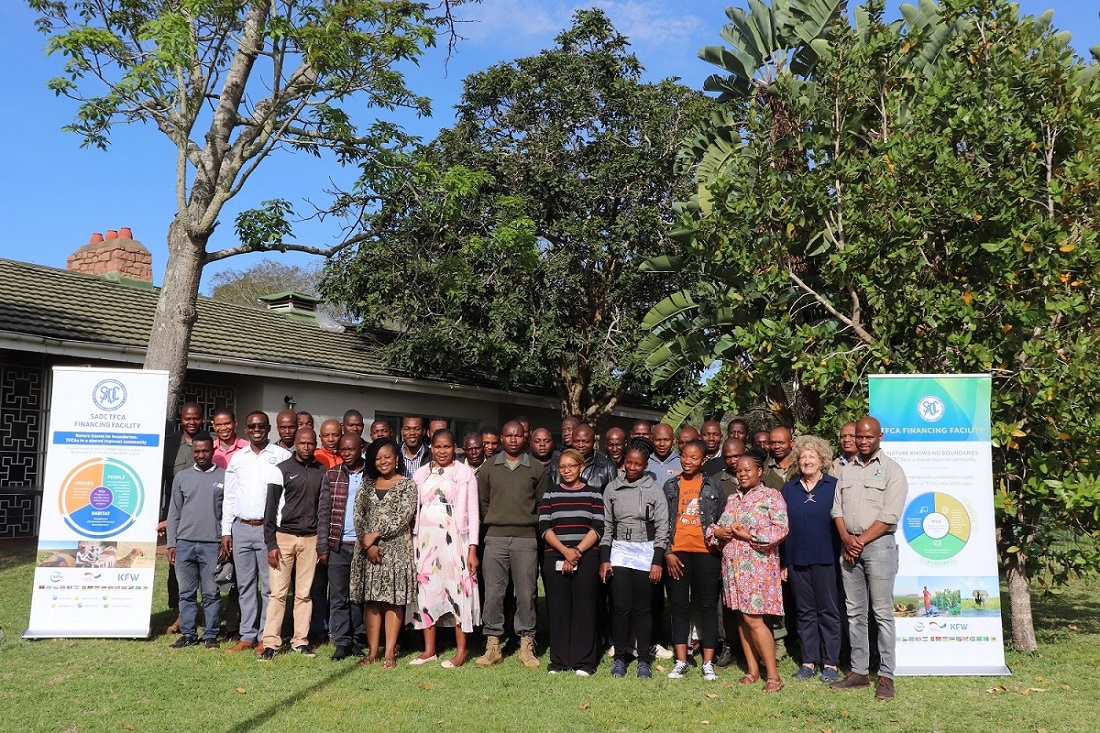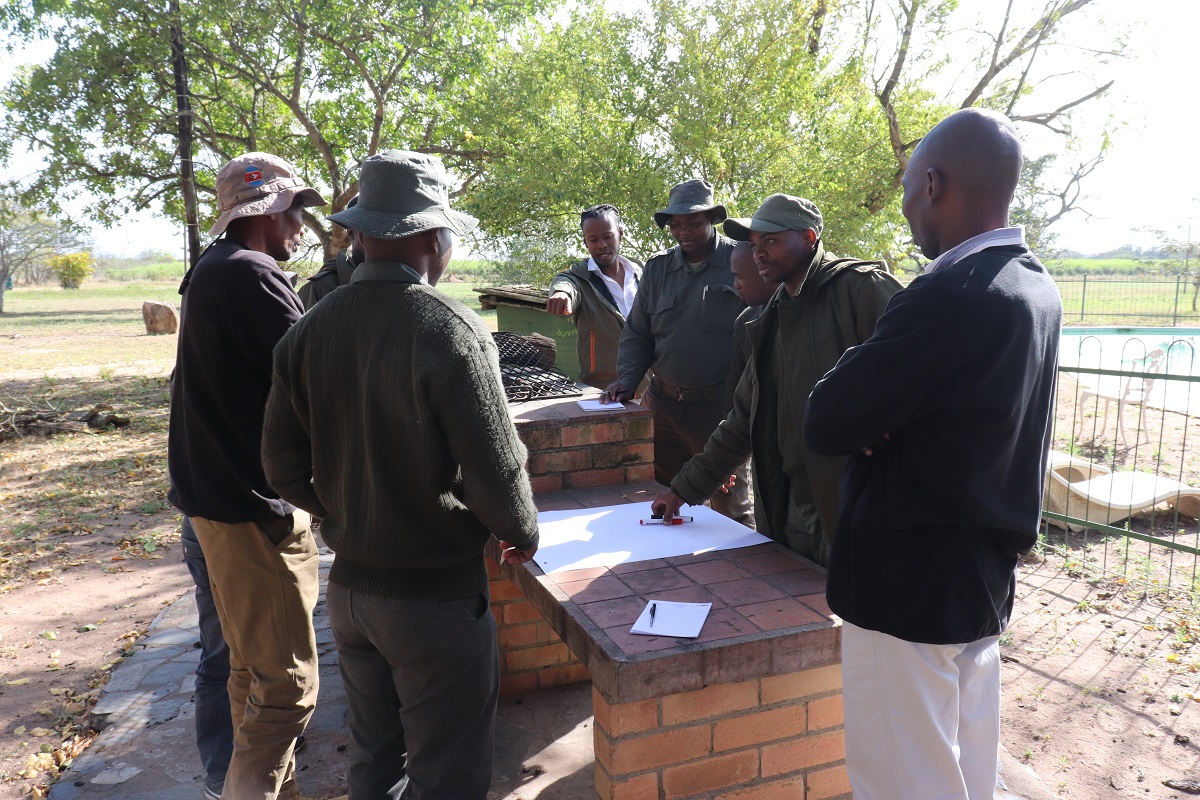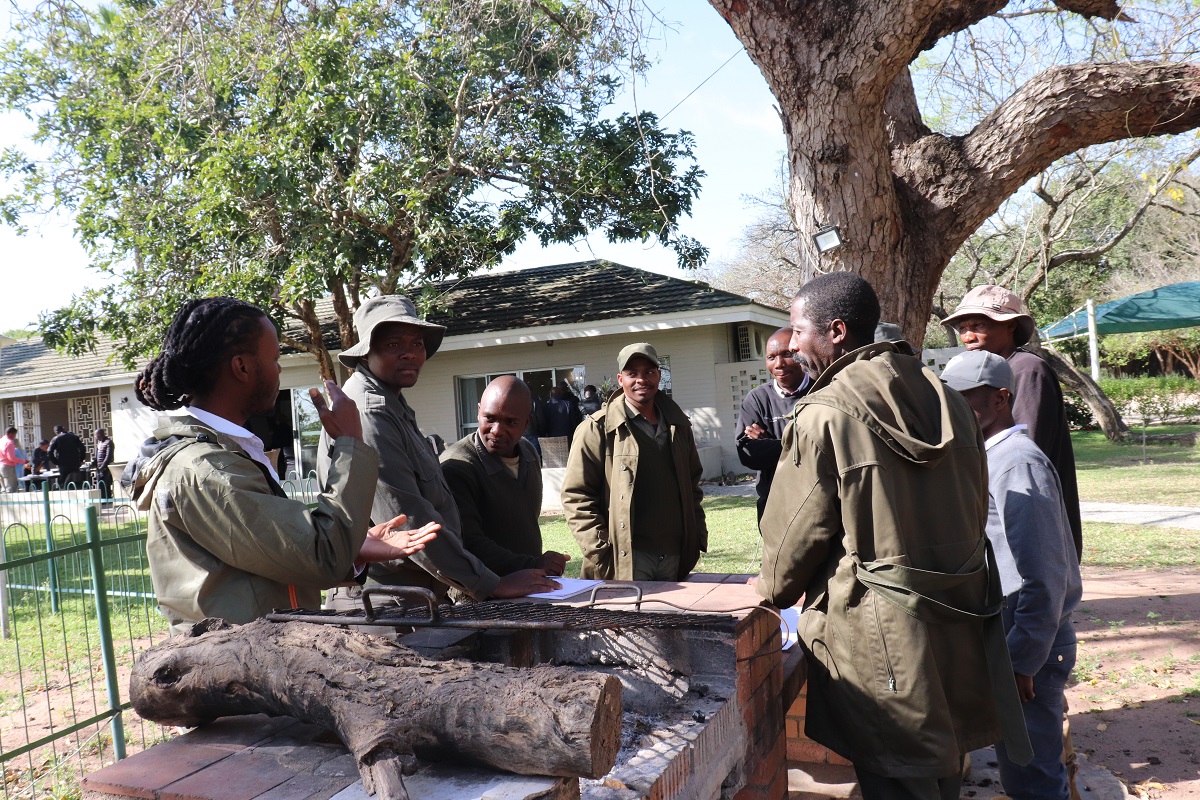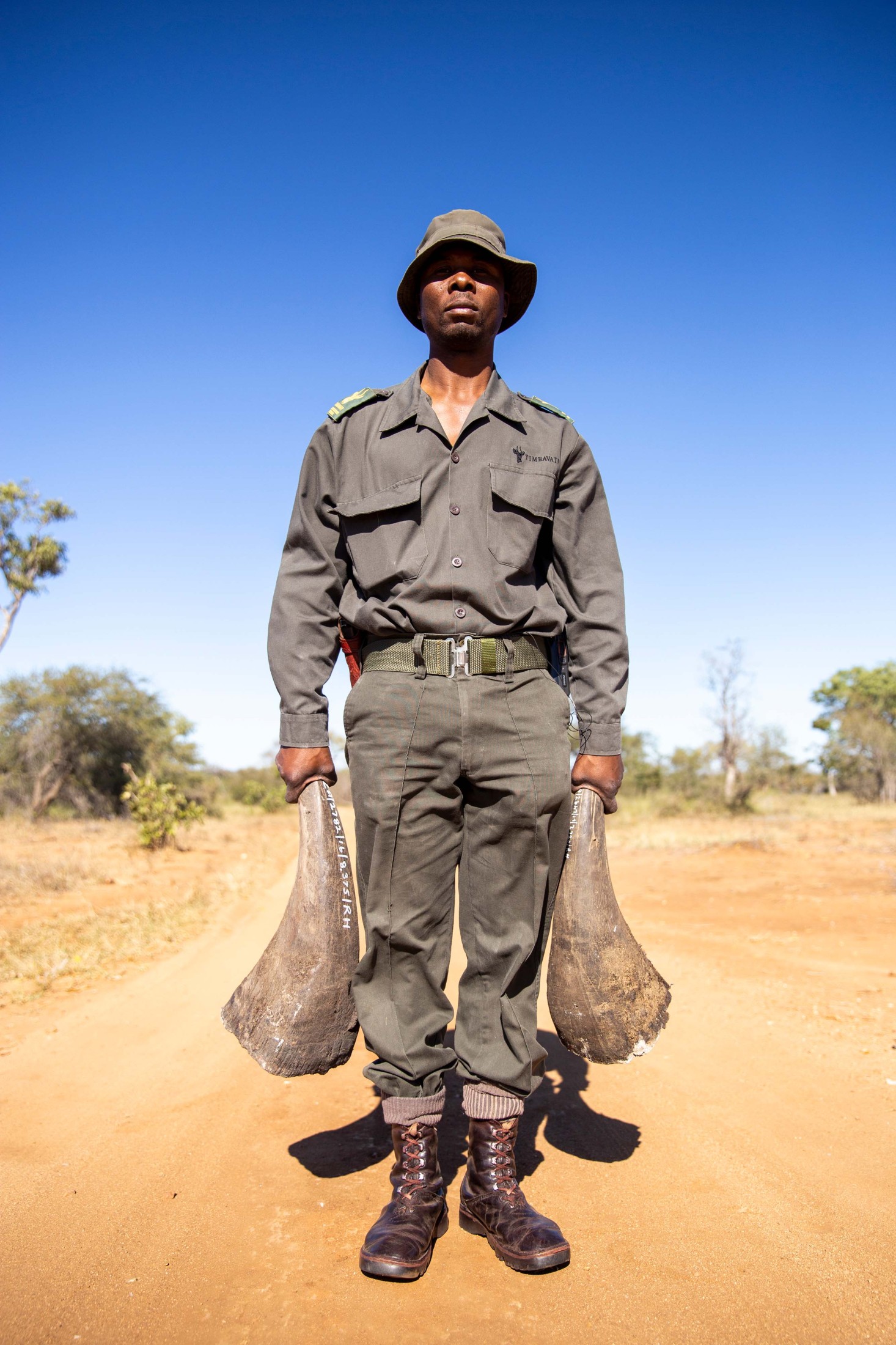Rangers in eSwatini Receive Human Rights Training in Law Enforcement through SADC TFCA Financing Facility
In its efforts to mainstream human rights in the day-to-day operations of rangers in Southern Africa, IUCN’s SADC TFCA Financing Facility commissioned the first training session on Human Rights and Law Enforcement for its grant recipients in Lubombo TFCA, eSwatini.

At least 53 rangers drawn from a number of conservation areas within eSwatini’s component of the Lubombo TFCA, including Community Conservancies, ENTC (Government Institutions), IYSIS, Mbuluzi Game Reserve and Phophonyane Conservancy (Private Sector), and Mhlumeni Bush Camp and Shewula Mountain Camp (Community Conservancies) participated in the training this year.
Eswatini National Trust Commission (ENTC), in partnership with Participatory Ecological Land Use Management (PELUM), are implementing partners for a Covid-19 Response Grant funded by KfW under the SADC TFCA Financing Facility. The aim of the COVID grant is to support ENTC, partners and local communities in closing the financing gap induced by the pandemic which affected park operations and resulted in loss of livelihood options for many communities living in the TFCA. eSwatini signed a grant contract with IUCN ESARO to fund activities including the provision of rations and protective equipment for anti-poaching operations, as well as supporting community livelihoods in the form of mushroom farming.
Speaking during the official opening of the Training, Eswatini National Trust Commission Chief Executive Officer Ms Hlobsile Sikhosana highlighted that ENTC was grateful for the support from IUCN for facilitating the Ranger Training on Human Rights in Law Enforcement and other Environmental and Social Safeguards for the project.
“This training is an important means to create awareness and understanding among the rangers on human rights in relation to law enforcement activities in Lubombo TFCA as well as an understanding of responsibilities that rangers have to comply with during their field operations,” said Ms Sikhosana.
 Photo: Participants deliberate on their duties and responsibilities in small groups. Credit IUCN ESARO
Photo: Participants deliberate on their duties and responsibilities in small groups. Credit IUCN ESARO
SADC TFCA FF Environmental and Social Management Officer Kambili Chilufya explained that the need to train rangers on human rights emanated from the understanding that Law Enforcement operations come with potential risks and challenges including the following:
- Infringement on human rights of wildlife crime suspects and communities that draw livelihoods from the natural resources; and
- Confrontations between Law Enforcement Officers and local communities.
During the Training, PELUM Country Coordinator Ms Tsakasile Dlamini said they were pleased that the knowledge shared with the rangers would contribute to more effective implementation of the project.
“We are all walking away from this training with a more enriched understanding of human rights as they apply to law enforcement operations,” she said.
Meanwhile Eswatini Human Rights Examiner, Mr. Newman Mamba highlighted the need to review wildlife legislation for eSwatini to align with the current paradigm in wildlife conservation including human rights considerations in this sector.
The TFCA Financing Facility will continue to support implementation of Environmental and Social Safeguards for projects implemented in SADC TFCAs. Other Safeguards Tools being supported and encouraged in line with human rights and law enforcement are: Stakeholder Engagement Plan, Grievance Redress Mechanism, development of Serious Incident Reporting Procedure and its Process Framework.
 Photo: Credit. IUCN ESARO
Photo: Credit. IUCN ESARO



